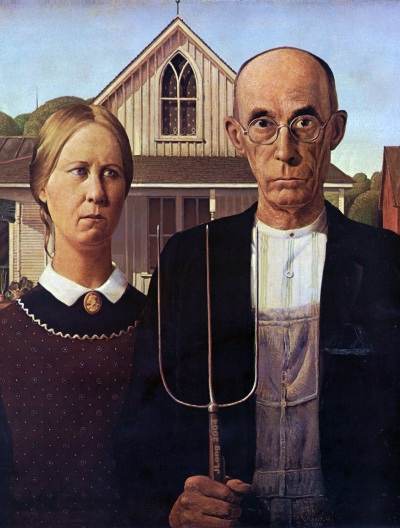The sequester is beginning to bite—we’ve been told by the president that we’ll notice it increasingly as the months go by–and suddenly local politicians (but not Republicans in Congress) are beginning to complain. Maybe the one sliver lining to the sequester, which is terrible policy, is that it will alert people to how much they rely on federal spending.
Or maybe not. It is a curiosity in America that those parts of the country that depend most heavily on governmental services are generally those parts of the country that complain the loudest about big government and federal intrusion. It’s as though they see their dependence as an affront to their dignity.
Perhaps there’s an element of shame in their complaining, but it’s hard not to see it as an exercise in what the existentialists call “bad faith.” We saw vivid examples of this in the summer of 2010 when elderly Tea Party protesters told the government to keep its hands off their Medicare. Joseph Heller describes the situation rather nicely in Catch 22.
Before quoting his passage, let me back my point up with some figures, taken from a Slate article last October. Here’s a list of the ten states which rely the most heavily (proportionately speaking) on the federal government—which is to say, on taxes paid by other states (the money goes to such things as farm subsidies, military bases, anti-poverty aid, pork projects, disaster relief, Indian reservations, and the like): New Mexico, Mississippi, Alaska, Louisiana, West Virginia, North Dakota, Alabama, South Dakota, Kentucky, Virginia, and Kentucky. All but New Mexico and Virginia voted Republican in the last election.
And now here are the ten states that contribute the most to other states through their taxes: New Jersey, Nevada, Connecticut, New Hampshire, Minnesota, Illinois, Delaware, California, New York, and Colorado. All voted Democratic in the last election.
Heller’s character is a mid-20th century version of an evangelical, rural state,Tea Party Patriot. Or for that matter, of a Mitt Romney complaining about the gifts that Obama used to woo voters, even as he took full advantage of corporate tax loopholes and stashed money away in the Cayman Islands. Major Major’s father is against waste and fraud (“economy in government”), which as columnist Jonathan Bernstein points out for Americans are essentially “programs I don’t like.” Heller gets the sermonizing self-righteousness of some of these people just about right:
Major Major’s father was a sober God-fearing man whose idea of a good joke was to lie about his age. He was a long-limbed farmer, a God-fearing, freedom-loving, law-abiding rugged individualist who held that federal aid to anyone but farmers was creeping socialism. He advocated thrift and hard work and disapproved of loose women who turned him down. His specialty was alfalfa, and he made a good thing out of not growing any. The government paid him well for every bushel of alfalfa he did not grow. The more alfalfa he did not grow, the more money the government gave him, and he spent every penny he didn’t earn on new land to increase the amount of alfalfa he did not produce. Major Major’s father worked without rest at not growing alfalfa. On long winter evenings he remained indoors and did not mend harness, and he sprang out of bed at the crack of noon every day just to make certain that the chores would not be done. He invested in land wisely and soon was not growing more alfalfa than any other man in the county. Neighbors sought him out for advice on all subjects, for he had made much money and was therefore wise. “As he sow, so shall ye reap,” he counseled one and all, and everyone said, “Amen.”
Major Major’s father was an outspoken champion of economy in government, provided it did not interfere with the sacred duty of government to pay farmers as much as they could get for all the alfalfa they produced that no one else wanted or for not producing any alfalfa at all. He was a proud and independent man who was opposed to unemployment insurance and never hesitated to whine, whimper, wheedle, and extort for as much as he could get from whomever he could. He was a devout man whose pulpit was everywhere.
“The Lord gave us good farmers two strong hands so that we could take as much as we could grab with both of them,” he preached with ardor on the courthouse steps or in the front of the A&P as he waited for the bad-tempered gum-chewing young cashier he was after to step outside and give him a nasty look. “If the Lord didn’t want us to take as much as we could get,” he preached, “He wouldn’t have given us two good hands to take it with.” And the others murmured, “Amen.”
Major Major’s father had a Calvinist’s faith in predestination and could perceive distinctly how everyone’s misfortunes but his own were expressions of God’s will . . .
Note how capitalism and Christianity become bound up inextricably in this self -justifying logic. The reason that no president is able to get rid of farm subsidies, incidentally, is because the rural states have a disproportionate share of the votes in Congress relative to their population. And as they therefore have a disproportionate voice in the national discourse, we have the politics that we have. It’s easy to talk this way if you don’t have to govern.


